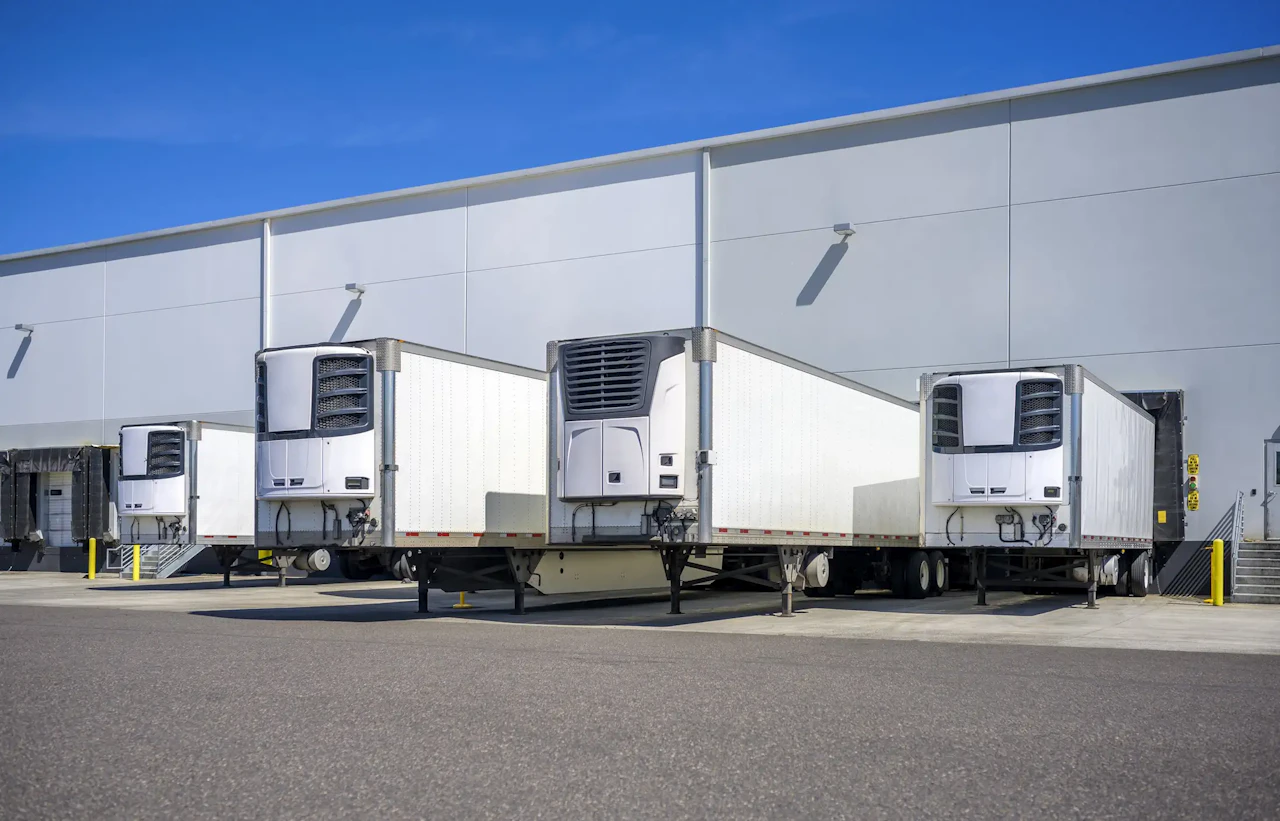A failing reefer unit doesn’t just cost you a repair bill—it puts your entire load at risk. Spotting early signs of reefer trouble is the key to avoiding breakdowns, spoiled cargo, and missed deadlines.





How to Spot Trouble in Your Reefer Before It Breaks Down
Your refrigerated trailer is your moneymaker—and when it quits, so does your paycheck. Whether you’re hauling produce, pharmaceuticals, or frozen goods, the reefer unit is your lifeline. Unfortunately, these systems don’t always fail with warning lights or sirens. Sometimes, the only clue is a slight temp fluctuation or a strange vibration—and before you know it, you’ve got a spoiled load and a major repair.
Atlanta Reefer And Trailer Services has seen it all. Here’s how to catch problems early—before your reefer breaks down on the side of I-285 with $80,000 worth of product in jeopardy.
Watch for Irregular Temperature Fluctuations
Reefers are built to maintain tight temperature control, often within a few degrees. If your display shows odd spikes or dips outside of your setpoint, something’s wrong. Common culprits include:
- Failing thermostats or temperature sensors
- Clogged evaporator coils
- Leaky door seals are causing warm air intrusion
- Low refrigerant or compressor issues
- Software glitches in the control unit
Even a short period of temperature deviation can violate FSMA standards and cause a load rejection. Don’t ignore inconsistent readings—they’re often the first sign of impending failure.
Unusual Noises or Vibrations
You know what your reefer is supposed to sound like. When that hum turns into a rattle, buzz, or grinding noise, it’s time to pay attention. Common signs include:
- Vibrating compressor or loose mounts
- Worn fan bearings
- Squealing from worn belts or pulleys
- Buzzing relays or shorted control boards
Mechanical wear rarely corrects itself. Noises are usually early warnings of components about to fail—and catching them early could save you thousands.
Condensation or Ice Build-Up
Any kind of excessive moisture or frost is a red flag. Your reefer should remain dry and free of condensation, both inside the cargo area and within the unit itself. Key things to watch for:
- Ice on evaporator coils can choke airflow and cause freeze-ups
- Moisture inside the control panel can short electronics
- Standing water in drain pans or around seals
- Fogging, which may suggest a failing door seal or improperly cycled defrost
Too much ice or moisture is usually a symptom of a refrigeration imbalance, blocked airflow, or inefficient defrost cycles—all of which reduce cooling power.
Fuel System and Electrical Trouble
A reefer isn’t just about cooling—it’s a system of electronics, combustion, and airflow. Problems in the fuel or electrical system can shut down the entire unit unexpectedly. Look for:
- Hard starts or slow cranking
- Flickering or dim control display
- Error codes for low voltage, high discharge temps, or fuel pressure drops
- Intermittent unit shutdowns
- Blown fuses or faulty relays
Don’t overlook these signs. Many reefer units rely on DC power modules, which can fail slowly, draining battery life and eventually shutting down your refrigeration entirely.
Load Temp Takes Too Long to Stabilize
Another subtle but serious sign is how long it takes your trailer to pull down to temp. If the pre-cool cycle takes longer than usual or fails to stabilize, your reefer may be:
- Losing refrigerant
- Suffering from compressor inefficiency
- Running worn fans that don’t circulate properly
- Experiencing control board errors that prevent proper cycling
Time-to-temp is one of the most overlooked performance indicators. Track it—and if it’s trending longer than normal, get it checked.
Signs of Refrigerant Leaks
Refrigerant is the lifeblood of your reefer system—and losing it means losing cooling power. Leaks are usually slow and hard to spot, but here’s what to watch for:
- Oily residue around fittings, hoses, or coils
- Gradual loss in cooling efficiency
- Sudden increase in compressor run times
- Hissing or bubbling noises (often near evaporator coils)
If your reefer is low on refrigerant, it doesn’t just cool poorly—it overworks the compressor, leading to premature failure.
Stay One Step Ahead of Reefer Failure
When it comes to reefers, a small problem can ruin your entire load. At Atlanta Reefer And Trailer Services, we specialize in spotting and solving reefer issues before they become disasters. Don’t wait until you’re stuck with spoiled cargo and a shutdown unit. Keep a close eye on these warning signs, perform regular maintenance, and trust professionals who know what to look for. Staying ahead of the problem keeps your trailer cold—and your revenue flowing.
For more information about the trucking industry, read our article on the importance of brake maintenance for safety.
News & Articles
Read About The Latest in Industry
Here, you'll find regular articles covering a wide range of topics related to diesel repair, maintenance, and troubleshooting. Whether you're an operator, fleet manager, or diesel engine enthusiast, you'll find something of interest here.
Contact Us
Atlanta Reefer & Trailer Services provides a comprehensive range of mobile repair and maintenance. We come to your location in Atlanta, GA & the surrounding areas to perform services onsite. Give us a call, send us an email, or fill out our service request form to get in touch today!
Contact Information
Phone Number
770-655-9912Hours
8:00 AM - 6:00 PM
After Hours: 6:00 PM - 8:00 AM & Weekends

